Postpartum Recovery: What to Expect and How to Support?
Welcome to the exceptional journey of motherhood! As you welcome your little one into the world, you’re also starting on a profound journey of postpartum recovery. This period is as much about caring for yourself as it is about supporting your newborn. So explore with us as we navigate the postpartum recovery timeline and share postpartum recovery tips that can help foster well-being and celebrate the beauty of motherhood.

Physical Changes After Giving Birth
After giving birth, your body experiences many changes:
- Vaginal Soreness and Discharge: It’s normal to experience discomfort and discharge from the vagina.
- Breast Changes: Swollen, sensitive breasts as milk production begins. You may also experience leaking, overfilling, or sore nipples.
- Skin Changes: You might observe changes in your skin, such as dark spots, melasma (the ‘"mask of pregnancy’"), or acne. These skin alterations can blur over time but may demand some further skincare or treatment.
- Fatigue and Recovery: You’ll expect to feel more tired than usual as your body works to restore from childbirth. This fatigue is normal and expected, but it’s important to rest as much as possible and ask for help when required.
- Digestive Issues: Constipation and unease while urinating are common.
- Cramping and Fatigue: You might experience uterine cramping and feel intensely tired.
Recovery can vary depending on whether you had a vaginal birth or a Caesarean section (C-section). If you had a C-section, keeping the surgical cut clean and following medical advice is crucial. Changes like hair loss, sweating, and skin modifications can emerge due to hormonal changes.
Emotional Modifications
Postpartum emotions can be excessive. Hormonal changes may cause mood swings, shifting from joy and enthusiasm to sadness and anxiety. The "baby blues" are common, but if these feelings continue beyond two weeks and are serious, it could be postpartum depression, which needs medical attention.
Tips for a Prospering Recovery
Nurturing yourself during postpartum recovery is crucial for flourishing in this new chapter. Here’s how you can turn self-care into a beautiful routine:
Craft Your Self-Care Rituals:
Picture self-care as your regular gift to yourself. Whether it’s a relaxing bath, some moments with a cherished book, or a relaxing walk outside, these moments are your chance to recharge. Instill your meals with nourishing foods and keep moisturized—these acts of self-love are your way of honoring your body’s needs.
Build Your Support Group
: Think of your support network as your personal support squad. Family and friends can help with everything from meal prep to baby cuddles. Allow them to step in and lighten your load.
Rest with Purpose:
Treat rest as a cherished part of your recovery journey. Avoid speeding back into your pre-pregnancy routine and instead, listen to your body’s signals. Celebrate each break and silent moment as a step toward your finished recovery.
Stay Connected with Your Healthcare Guide
: Your healthcare supplier is like your personal guide through this journey. Keep up with check-ups and share any worries you have. Their guidance is tailored to your unique needs and can offer comfort and support.
Accepting the New Chapter
Postpartum recovery is a journey of conversion, full of both challenges and victories. Accept each day with a heart full of tolerance and self-love. Celebrate the small victories, adore the moments with your newborn baby, and identify the strength it takes to direct this period.
You are a notable mother, and with each passing day, you are writing a beautiful story of recovery and growth. Here’s to a postpartum journey filled with grace, support, and boundless love.
Though the postpartum days fly by, you’ll treasure them forever. Commemorate these early moments with a unique piece of breastmilk jewellery from Momacado Baby.
Frequently Asked Question
When can I restart sexual activity after childbirth?Most doctors suggest waiting 6 weeks postpartum before continuing sexual activity, regardless of in case you had a vaginal birth or a C-section. However, it's important to hear from your body and consult your healthcare supplier for advice on your recovery.
What are some signs that I need to contact my healthcare provider?Call your doctor if you experience massive bleeding, severe pain, a fever, difficulty urinating, chest pain, hurdle breathing, or signs of infection at your C-section cut. Additionally, if you’re feeling highly nervous, depressed, or disconnected, seek support.
How can my partner support me during postpartum recovery?Boost open communication with your partner about your needs. Functional help like cooking, cleaning, and caring for the baby can relieve your load. Emotional support is also crucial—encourage them to listen and offer comfort during this time of adjustment.
How do I manage breastfeeding challenges postpartum?Common breastfeeding challenges include sore nipples, engorgement, or difficulty with gripping. Seeking help from a nursing consultant can be beneficial. Hydration, rest, and proper placement can ease discomfort, and learning diverse nursing methods may Boost your expertise.
